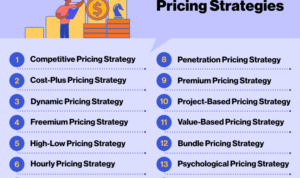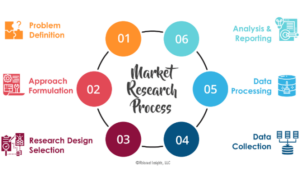Online Business Compliance is more than just following rules – it’s about navigating the digital landscape while keeping your operations in check. From understanding key regulations to implementing necessary measures, this topic delves into the essential aspects of compliance for online businesses.
Importance of Online Business Compliance
Online business compliance is essential for operating legally in the digital landscape. By following regulations and laws, businesses can avoid penalties, fines, and even potential shut down. Non-compliance can lead to tarnished reputation, loss of customer trust, and legal repercussions.
Compliance Requirements for Online Businesses
- Privacy Policies: Ensuring the protection of customer data and information.
- Terms of Service: Outlining the conditions of use for your website or platform.
- Payment Card Industry Data Security Standard (PCI DSS): Handling credit card information securely.
- Accessibility Standards: Making sure your website is accessible to all users, including those with disabilities.
Building Trust with Customers through Compliance
- Transparency: Demonstrating your commitment to following rules and regulations.
- Security: Protecting customer data and providing a safe online environment.
- Reliability: Showing customers that you are a trustworthy and responsible business.
Common Compliance Regulations

Online businesses need to adhere to various key regulations to ensure they are operating legally and ethically. Two of the most important compliance standards for online businesses include the General Data Protection Regulation (GDPR) and the Payment Card Industry Data Security Standard (PCI DSS).
GDPR
The GDPR was implemented in 2018 to protect the personal data of individuals within the European Union. Online businesses must comply with regulations regarding the collection, processing, and storage of personal data. Failure to comply with GDPR can result in hefty fines and damage to the reputation of the business.
PCI DSS
PCI DSS is a set of security standards designed to ensure that all companies that accept, process, store, or transmit credit card information maintain a secure environment. Compliance with PCI DSS helps prevent data breaches and protects sensitive customer information. Non-compliance can lead to financial penalties and loss of customer trust.
It is essential for online businesses to understand and adhere to these compliance regulations to protect both their customers and their reputation.
Implementing Compliance Measures

When it comes to ensuring online business compliance, there are several key steps that companies need to take to protect themselves and their customers. This includes implementing data protection policies, ensuring secure payment systems, conducting regular compliance audits, providing employee training, and integrating compliance into everyday business operations.
Steps to Ensure Online Business Compliance
- Develop clear data protection policies that Artikel how customer information is collected, stored, and used.
- Implement secure payment systems to protect financial transactions and customer data from cyber threats.
- Regularly update software and systems to address any vulnerabilities that could compromise compliance.
Conducting Compliance Audits Regularly
- Assign a dedicated compliance officer or team to oversee audits and ensure all regulations are being followed.
- Review internal processes, documentation, and security measures to identify any areas of non-compliance.
- Document audit findings and implement corrective actions to address any issues that are identified.
Role of Employee Training in Maintaining Compliance
- Provide comprehensive training on compliance regulations, data protection policies, and security protocols to all employees.
- Ensure that employees understand their roles and responsibilities in maintaining compliance and protecting customer data.
- Regularly update training programs to reflect changes in regulations and best practices.
Best Practices for Integrating Compliance into Everyday Business Operations
- Include compliance considerations in decision-making processes and strategic planning.
- Establish clear communication channels for reporting compliance issues or concerns.
- Regularly review and update compliance policies and procedures to align with current regulations.
Technologies for Ensuring Compliance
In the modern digital landscape, online businesses are leveraging technology to streamline their compliance processes and ensure adherence to regulations. By utilizing various compliance management software and automated tools, companies can not only enhance their compliance practices but also improve operational efficiency.
Compliance Management Software
- One popular compliance management software in the market is ComplianceQuest, which offers a comprehensive solution for managing regulatory requirements and ensuring compliance across various industries.
- Another notable option is LogicGate, known for its customizable workflows and risk management capabilities, helping businesses tailor compliance processes to their specific needs.
- Additionally, Onspring provides a user-friendly platform for tracking compliance activities, audits, and assessments, simplifying the overall compliance management process.
Benefits of Automated Tools
- Automated tools help online businesses in monitoring compliance by sending alerts for upcoming deadlines, tracking changes in regulations, and generating reports for audits.
- These tools reduce manual errors, improve accuracy in compliance data, and save time by automating repetitive tasks, allowing employees to focus on strategic initiatives.
- Furthermore, automation ensures consistency in compliance practices, enhancing overall governance and risk management within the organization.
Examples of Technology Improving Compliance Practices
- Through the use of Artificial Intelligence (AI) and Machine Learning algorithms, companies can analyze vast amounts of data to identify compliance risks proactively and take necessary actions to mitigate them.
- Blockchain technology is also being employed to enhance transparency and traceability in compliance processes, providing immutable records of transactions and activities.
- Cloud-based compliance management systems enable real-time access to compliance data, facilitating collaboration among team members and ensuring timely responses to compliance requirements.





